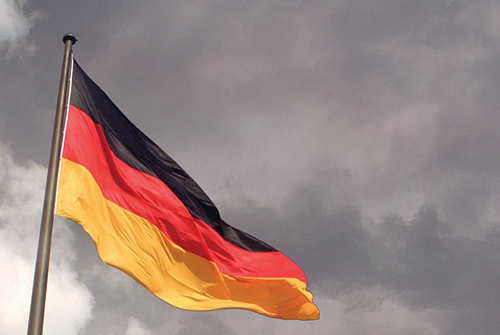Cultural laws being implemented by Berlin are just the tip of the iceberg © Anati
Some German art dealers are questioning whether the local art market offers them a future as a new law on protecting cultural assets adds to hurdles, including an increase in value-added taxes, social welfare payments for artists and global economic risks.
The Kulturgutschutzgesetz (Cultural Assets Protection Law) had its first hearing in the lower house of parliament on 18 February and is expected to pass into law in the coming months. Its primary aims are to stop the illegal trade in looted antiquities and to ensure that works deemed significant to the national heritage do not leave the country.
Paintings worth more than €300,000 or are more than 70 years old will in future require an export licence for European Union (EU) countries. If they are deemed to be of national cultural heritage status, they cannot be exported. It is so far unclear what criteria will be applied to determine whether a work is of national relevance. Dealers say they are already losing potential buyers before the law takes effect.
Collectors hold back
The Berlin dealer Michael Haas—who focuses on 20th-century and postwar art, including the work of Georg Baselitz, Marc Chagall and Otto Dix—says he has lost two deals because of the forthcoming legislation. Potential buyers fear their purchases would be placed under export bans, limiting their market to Germany should they later wish to sell, Haas says. “The big collectors are holding back massively at the moment,” he adds. “No one is bringing pictures into Germany any more. They are only taking them out.”
Germany’s share of the global art market was maintained at a low 2% in 2015, according to figures in the annual Tefaf report published in March. Yet in other areas, Germany remains among the world’s most successful economies: its overall share of world exports is more than 7%, for example.
“It is not that Germans are dumber when it comes to art than in other fields,” says Markus Eisenbeis, the managing director of the Cologne auction house Van Ham. “It is all to do with the conditions and legal framework.”
Eisenbeis says some of his clients have already moved works into storage facilities in London as a precaution. “I will never be able to auction these expensive pictures now because they are in London and it is likely they will stay there,” he says. The new law will also require paperwork to be kept for 30 years, which Eisenbeis said is not practical for many smaller dealerships.
In addition to the uncertainty over the Cultural Assets Protection Law, dealers have had to swallow an increase in value-added tax to 19% from a previous 7%, implemented in 2012 to conform with EU law. The 16 German states have since failed to adopt a federal government measure aimed at compensating dealers for the shortfall, dealers say.
This, together with social insurance contributions that dealers have to pay on works by living artists, is squeezing margins and creating a market imbalance. “A Swiss dealer can offer the same picture for less and still make more profit than I would,” says Kristian Jarmuschek, a Berlin dealer.
“It is catastrophic,” Haas says of the current environment for dealers in Germany. “My daughter wants to take over the business but I can’t recommend it. It has no future,” he adds.
Antiquities trade at risk
In February, Kölnmesse, the organisation that runs the world’s oldest art fair (Art Cologne), warned that “German art fairs may no longer be competitive in the long term internationally” because of the Cultural Assets Protection Law. This year’s edition of Art Cologne begins today, 14 April.
One sector of the art market that may leave the country for ever because of the law is the antiquities business. The bill requires an export licence from the country of origin for any archaeological treasures imported into Germany or sold on the domestic market. Van Ham is considering closing its Asian art department, Eisenbeis says.
At Nagel Auktionen in Stuttgart, Michael Trautmann, an expert in Chinese art, says that the summer auction of Asian art has been brought forward to May from June, before the law is enacted. “China doesn’t even issue export licences,” he says. “This is all so absurd. We don’t know what will come but we have to be prepared.”
